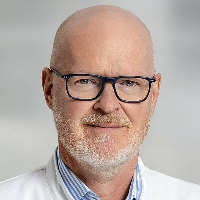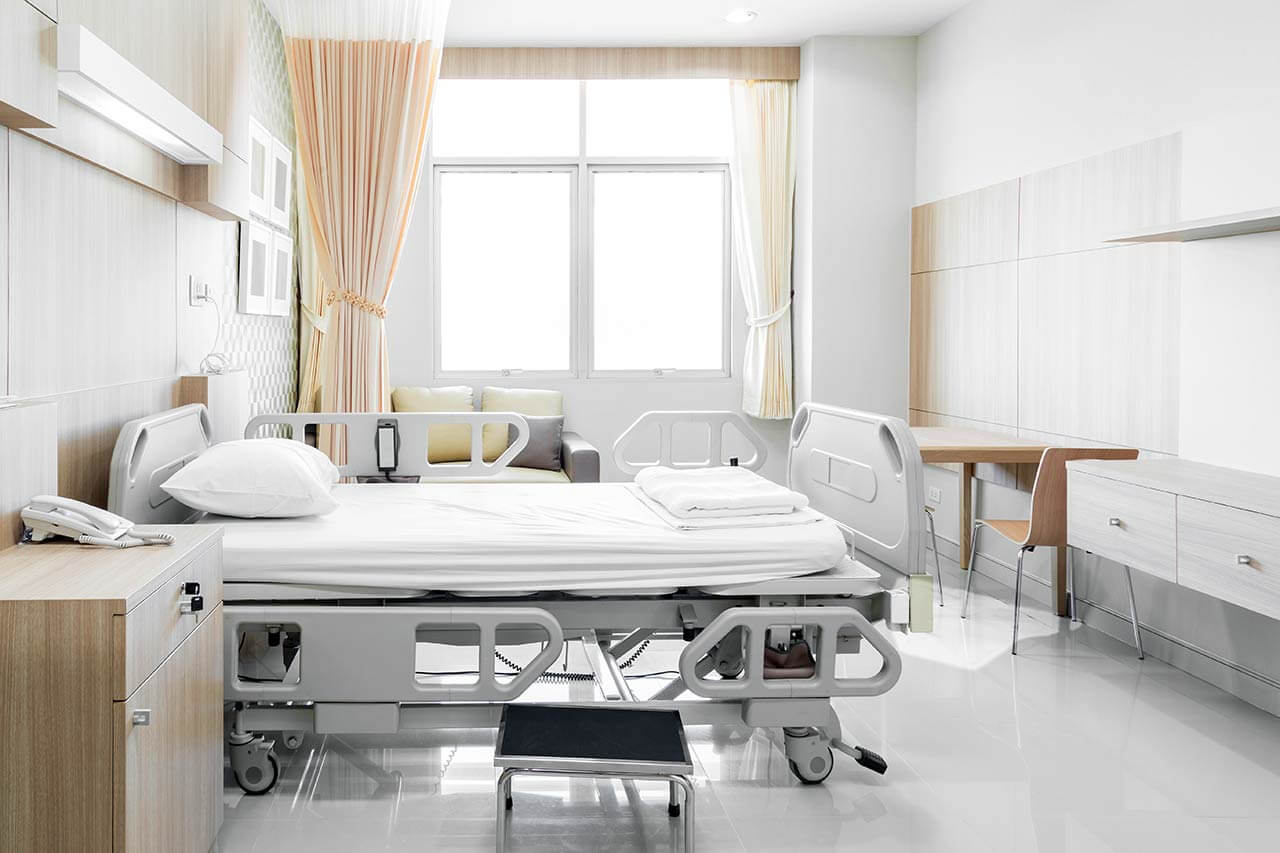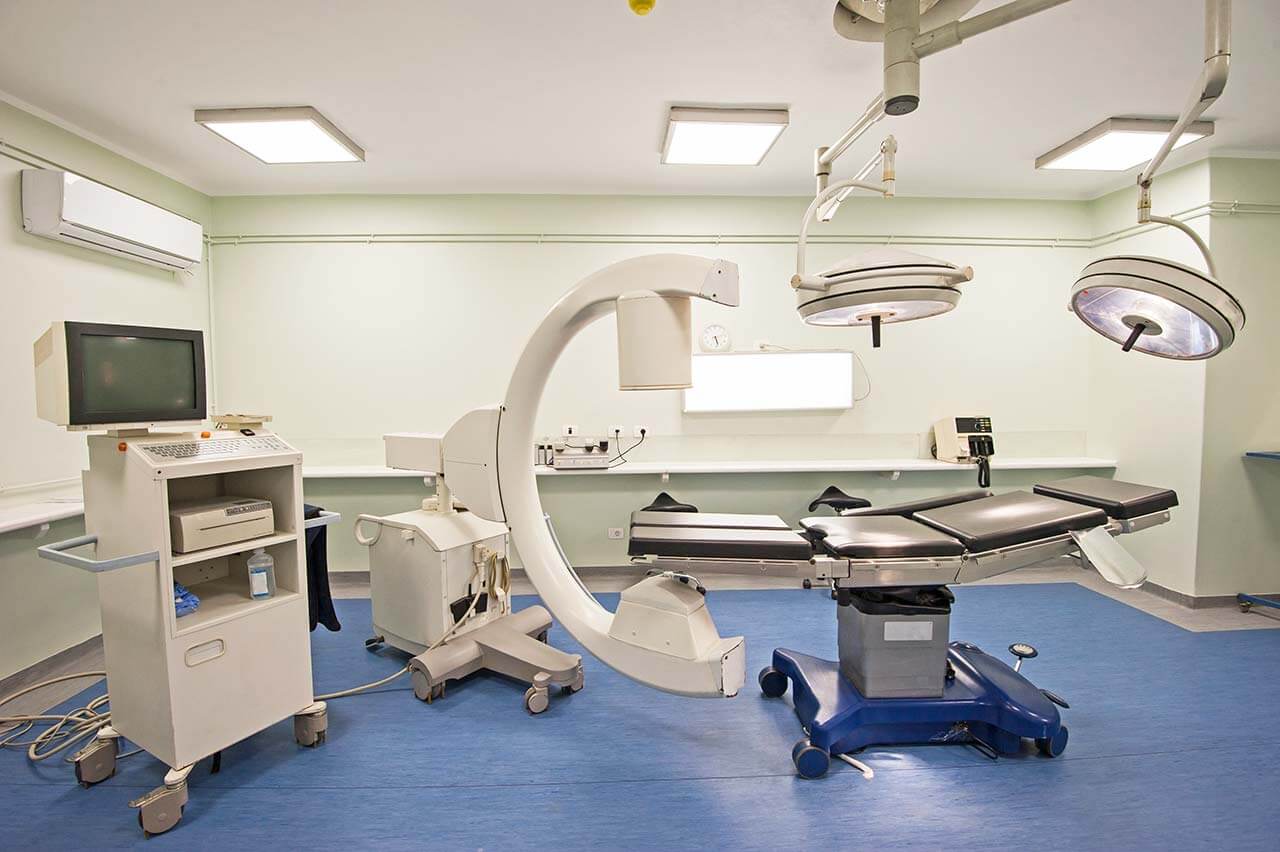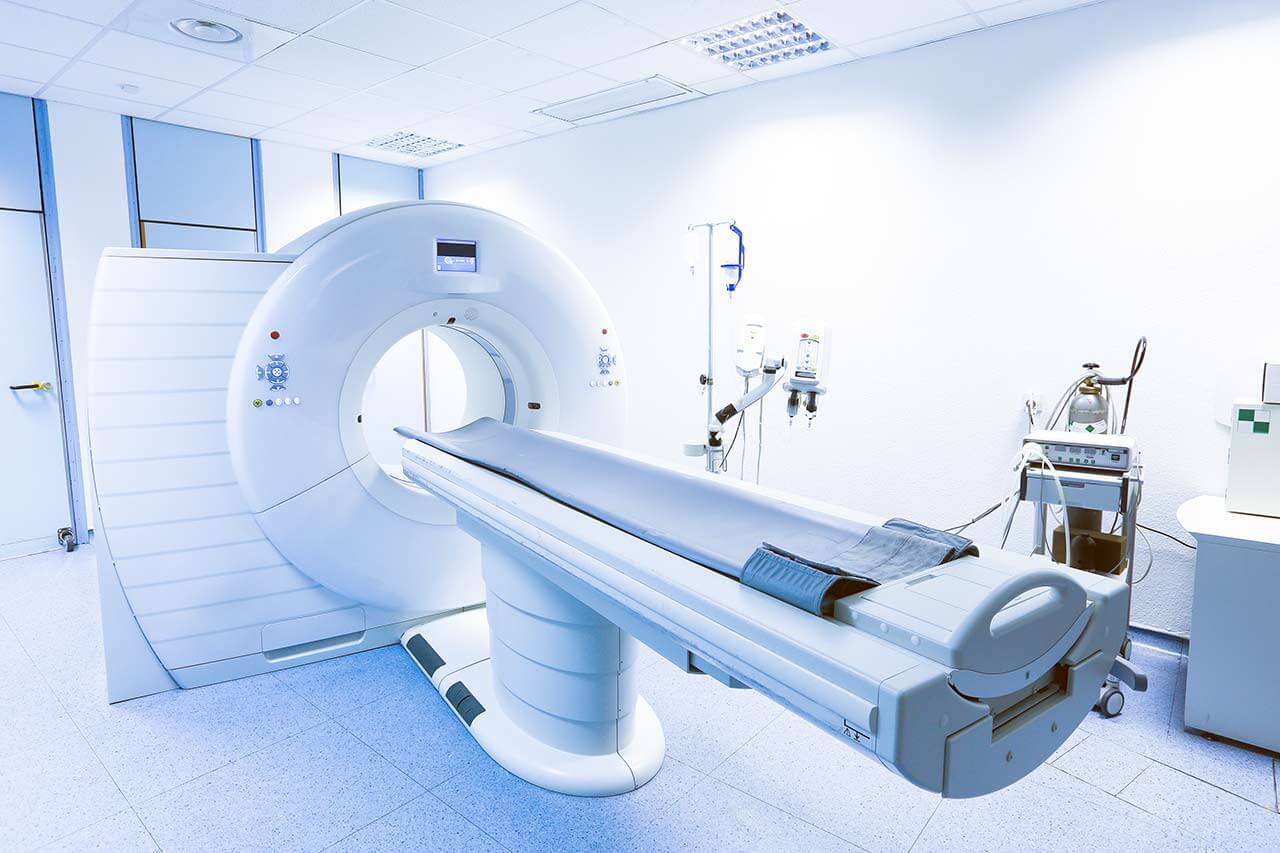
The program includes:
- Initial presentation in the hospital
- Clinical history taking
- Physical examination
- Laboratory tests:
- complete blood count
- biochemical analysis of blood
- TSH, free T3, free T4
- indicators of inflammation
- coagulation tests
- Renal scintigraphy
- Ga-68 DOTATATE PET/CT (if indicated)
- Lutetium-177-DOTATATE treatment
- Full body scintigraphy after 24 hours
- Full body scintigraphy after 48 hours
- Symptomatic treatment
- Cost of essential medicines
- Nursing services
- Stay in the hospital with full board
- Accommodation in 2-bedded room
- Elaboration of further recommendations
How program is carried out
During the first visit, the doctor will carry out a general physical examination and go through the results of previous laboratory and instrumental tests. After that, you will undergo the necessary additional tests such as the assessment of liver and kidney function, scintigraphy of the skeleton and salivary glands, somatostatin receptor imaging with Ga-68 DOTATATE PET/CT. This will allow the doctor to assess how effective the radionuclide therapy with Lutetium-177-DOTATATE will be and how well you will tolerate it. Also, the doctor will calculate your individual dosage of the radionuclide.
Radionuclide therapy with Lutetium-177-DOTATATE is carried out via intravenous administration of a solution with the radioactive isotope Lutetium-177-DOTATATE. The solution is injected through a catheter. This is a short procedure, as the infusion usually takes no more than 20 minutes.
During the procedure, you will need to apply cooling bags to the salivary glands, as Lutetium-177-DOTATATE partially accumulates in the salivary glands, affecting their function and causing dry mouth. You will also receive intravenous saline solutions and amino acid solutions to protect your kidneys.
After the infusion of Lutetium-177-DOTATATE, you will stay in a specially equipped (radiation-shielded) ward for 48 hours. The drug is quickly excreted by the kidneys, and after 48 hours you will no longer be dangerous to others. During these 48 hours, you can read, use a mobile phone, tablet or computer – all these devices will not be a source of radiation in the future.
Follow-up examinations include whole-body scintigraphy or computed tomography in 24 hours and 48 hours after the procedure. Based on the results of the examination, the doctor will determine whether one procedure is enough for you, or whether you will need to visit the hospital again. As a rule, 1-2 procedures are required for achieving a stable positive result. Procedures are carried out with an interval of 8 weeks.
Required documents
- Medical records
- MRI/CT scan (not older than 3 months)
- Biopsy results (if available)
Service
You may also book:
 BookingHealth Price from:
BookingHealth Price from:
About the department
The Department of Nuclear Medicine at the Helios Hospital Berlin-Buch offers the full range of diagnostic and therapeutic procedures using modern radioactive substances. The diagnostic options include scintigraphic studies of the lungs, heart, brain, kidneys, lymph nodes, bones, including in small patients. In the field of therapy, one of the priority focuses is the use of radioiodine therapy for thyroid pathologies. Medical care and patient care are provided by highly qualified doctors and nursing staff who believe that the health and wellbeing of their patients is a top priority.
The department is headed by Prof. Dr. med. Stefan Dresel. The doctor trained in the USA for two years and gained his invaluable clinical experience while working as a Senior Physician in the Department of Nuclear Medicine at the University Hospital of Ludwig Maximilian University of Munich. Prof. Stefan Dresel devoted more than 22 years of his life to nuclear medicine and today has a high reputation in his area of specialization in Germany. Of particular interest to him is the treatment of thyroid diseases, Lu-177-DOTATOC therapy for neuroendocrine tumors, and Lu-177 PSMA therapy for prostate cancer. The doctor also devotes a lot of time to work on scientific publications and the exchange of his experience at medical conferences.
A special offer in the field of diagnostics is positron emission tomography (PET). In the course of the study, the doctors use radioactive glucose, which makes it possible to assess the condition and functioning of almost all organs of the human body. Oncology is the main area of application for positron emission tomography (PET), because many types of cancer, such as lung cancer, colon tumors or lymphomas, consume glucose intensively. Thus, with the help of this study, the doctors can exclude or identify tumors and their metastasis in the early stages. In addition, this study is widely used to diagnose neurological disorders (for example, Alzheimer's disease, epilepsy, Parkinson's disease). PET is an effective method for the diagnostics of heart pathologies. The department also offers a combined PET-CT method, which allows to image not only the structure of internal organs and anatomical structures of the body, but also metabolic processes.
The specialists of the department provide the diagnostics and treatment of thyroid diseases. To identify thyroid pathologies, the doctors perform scintigraphy. During the study, the patient is administered an iodine-containing contrast agent, which selectively accumulates in the thyroid gland tissue. The thyroid pathologies can be treated using radioiodine therapy. During therapy, the patient takes radioactive iodine in the form of a small capsule. In more than 90% of all cases of therapy, the doctors manage to achieve a positive treatment result. The advantage of this therapy is that it does not cause any side effects for the patient.
The department’s range of medical services includes:
| Diagnostics |
|
| Therapy |
|
| Other diagnostic and therapeutic options |
Curriculum vitae
Education
- 1984 - 1991 Study of Human Medicine at Ludwig Maximilian University of Munich.
- 1993 Doctorate.
Professional Career
- 1992 - 1994 Research Fellow, Department of Radiology, University Hospital of Ludwig Maximilian University of Munich.
- 1994 - 1995 Research Fellow, Department of Nuclear Medicine, University Hospital of Ludwig Maximilian University of Munich, Campus Grosshadern.
- 1995 Research Fellow, Institute for Diagnostic Radiology and Magnetic Resonance Imaging, University Hospital of Ludwig Maximilian University of Munich.
- 1996 Senior Physician, Department of Nuclear Medicine, University Hospital of Ludwig Maximilian University of Munich, Campus Innenstadt.
- 1996 Board certification in Nuclear Medicine.
- 1996 - 1998 Research Fellow, Department of Radiology, University of Pennsylvania, Philadelphia, USA.
- 1998 - 2004 Senior Physician, Department of Nuclear Medicine, University Hospital of Ludwig Maximilian University of Munich, Campus Innenstadt.
- 201 Habilitation and Venia legendi in Nuclear Medicine.
- Since 2004 Chief Physician of the Department of Nuclear Medicine at the Helios Hospital Berlin-Buch, as well as Section Head at the Department of Nuclear Medicine at the Helios Hospital Robert-Roessle, Berlin.
- Since 2007 Extraordinary Professor of Ludwig Maximilian University of Munich.
- Since 2008 Head of the Specialized Group on Radiology, Radiation Therapy and Nuclear Medicine.
Clinical Focuses
- Diagnostics and therapy of benign and malignant thyroid diseases.
- PET-CT diagnostics using F-18 FDG, Ga-68 PSMA and Ga-68 Dotatoc.
- Radioreceptor therapy for neuroendocrine tumors using Lu-177 Dotatoc.
- Treatment of metastatic prostate cancer using Lu-177 PSMA.
- Treatment of liver tumors and liver metastasis using selective internal radiation therapy.
Photo of the doctor: (c) Helios Klinikum Berlin-Buch
Sources:
About hospital
According to the reputable Focus magazine, the Helios Hospital Berlin-Buch ranks among the top medical facilities in Germany!
The hospital is proud of its rich history, which dates back over 100 years, as well as the status of a maximum care medical center with exceptionally high success treatment rates. The medical institution is an academic hospital of the Charite Medical Complex, which is one of the best in Europe and around the world. To provide its services to patients, the hospital has over 1000 beds, over 60 specialized departments, centers and institutes, including emergency service and a helipad, as well as 23 state-of-the-art operating rooms.
The medical institution presents almost all branches of modern medicine, many of which are certified by professional German societies (for example, certification of the German Cancer Society, German Diabetes Society).
The hospital diagnoses and treats about 52,000 inpatients and more than 144,000 outpatients every year. The medical services and patient care are provided by world-renowned highly competent doctors and qualified nursing staff. To achieve the best treatment results, the doctors of related medical disciplines work closely together and jointly develop optimal treatment regimens.
It is worth noting that the hospital is located in a beautiful green park area. In the immediate vicinity of the hospital one can find Buch Castle, Buch Forest and Barnim Nature Park. All this has a beneficial effect on patients, as they have the opportunity to stroll through beautiful places that inspire and help to gain strength for the successful overcoming of the therapeutic process.
Photo: (c) depositphotos
Accommodation in hospital
Patients rooms
The patients of the Helios Hospital Berlin-Buch live in comfortable rooms made in bright colors. Each patient room is equipped with an ensuite bathroom with shower and toilet. The standard room includes an automatically adjustable bed with a system for calling nursing staff (this system also serves to use TV, radio, lamps), a bedside table, a locker for storing personal belongings, a TV, a radio. The hospital offers WI-FI.
Meals and Menus
The patients of the hospital are offered tasty and balanced three meals a day. Breakfast is served as a buffet with a wide selection of pastries, cereal, sausages and cheese. For lunch, the patients usually have a choice of three menus, including a vegetarian menu. Also, the patient can independently combine a lunch menu from various meat, fish and vegetarian dishes and side dishes. Dinner includes a standard menu and dishes that the patient can choose on his own to his taste.
In addition, the hospital houses a cozy cafe with an excellent assortment of pastries, fresh salads, sandwiches, as well as traditional Berlin dishes. Here you can enjoy a cup of aromatic coffee, hot tea or refreshment drinks.
Further details
Standard rooms include:





